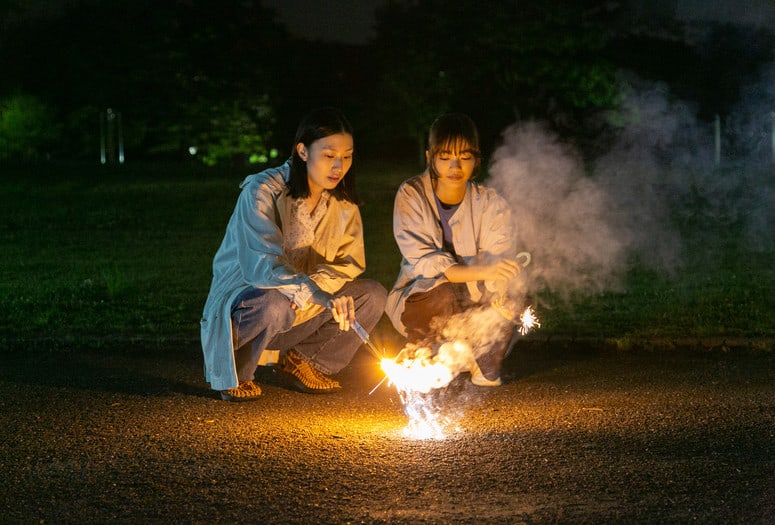“Remembering Every Night” is Yui Kiyohara's second feature-length film. The movie was presented in the 2023 “Berlin International Film Festival” Forum section and is currently showing at the Japanese Film Festival “Nippon Connection” in Frankfurt. The very young director had already presented her debut feature film “Our House” at the 2018 Berlinale, a work that also earned her the Grand Prize at the “PIA Film Festival” and the Best Director award at the 2018 “Asian New Talent Awards” in Shanghai.
Remembering Every Night screened at Nippon Connection

From the very first sequences – shot with a fixed camera – of empty streets, trees, the chirping of birds, and shots of anonymous Japanese buildings, the quite lonesome tone of the work is established. The protagonists are three women: one is searching for a job (Kumi Hyodo), another is a gas meter inspector (Minami Oba), and the third (Ai Mikami) is dealing with university studies and the processing of recent grief. The peculiarity of this female triangle lies in the elegance through which their paths never intersect, but delicately brush against each other through a cinematic interplay of framings. They all walk silently through the neighborhood, sometimes observing its dynamics, sometimes taking part in them. The act of walking, or rather wandering without a clear destination in mind, gives rise to small spheres of solitude, delicate interconnections, and authenticity. What is striking is that solitude is not burdensome, but rather represents an alternative approach to one's existence.
Check also this interview
The spatial dimension, which corresponds to its emotional geography, plays a crucial role in shaping a work that does not rely on its plot and screenplay for strength. The protagonists move within the confines of Tama City Hall, a city situated in the western part of the Tokyo Metropolis. Thus, we are not merely presented with a snapshot of Japan, but more importantly, we are confronted with a microcosm of the capital itself. Here, a few unassuming characters make their appearance — neither whimsical nor eccentric, but perfectly ordinary in a way that we could encounter them in any city around the world. The majority of Tama's inhabitants are elderly, such as Mr. Takada, afflicted by senile dementia, who struggles to find his way back home, or a woman leaning over her balcony, eagerly anticipating a brief exchange of words with any passersby. The contrast between the young women and the elderly inhabitants of the district constitutes one of the main thematic cores – the theme of memory, recollections, and time.
The acting and dialogue are (almost) stripped down to the bone. The director neither introduces nor delves into the backgrounds of the protagonists; the women simply exist in the hic et nunc, the here and now. A fundamental distance lies between the viewer and the characters; there are few close-ups or medium shots, while wide shots prevail, blending the women with the surrounding scenery. The actresses' performances could be described as “naïve” – simple and filled with candor – further enhancing a sense of genuineness and spontaneity. The work is essentially quiet, except for some moments where odd extradiegetic pieces are inserted, a sort of syncopated interlude bordering on comedy that adds a lively atmosphere to it.
“Remembering Every Night” may not be a groundbreaking and memorable work, but it offers a refreshing and light-hearted experience that we didn't know we needed. Kiyohara avoids presenting established themes in an overt and forced manner, allowing life and its spontaneous, uncalculated scenes to take center stage in the film's composition. She openly expressed her desire for the audience to interpret the film themselves, rather than being manipulated into a specific understanding that she was pursuing. As a result, viewers are relieved from the burden of constantly deciphering deeper meanings and are instead encouraged to simply observe life as it unfolds. If we were to compare this viewing experience to human activity, “Remembering Every Night” would be a stroll in a park on a tranquil summer afternoon.
In conclusion, Kiyohara's second feature does not cling to us, but rather flows before us, caressing us, only to evaporate shortly thereafter. It is a work that draws its roots from the spontaneity of life and its daily swirl, encompassing people walking, dancing in the park, slowly burning fireworks and nothing more. We should keep an eye out for the future projects of this young, promising Japanese director.















